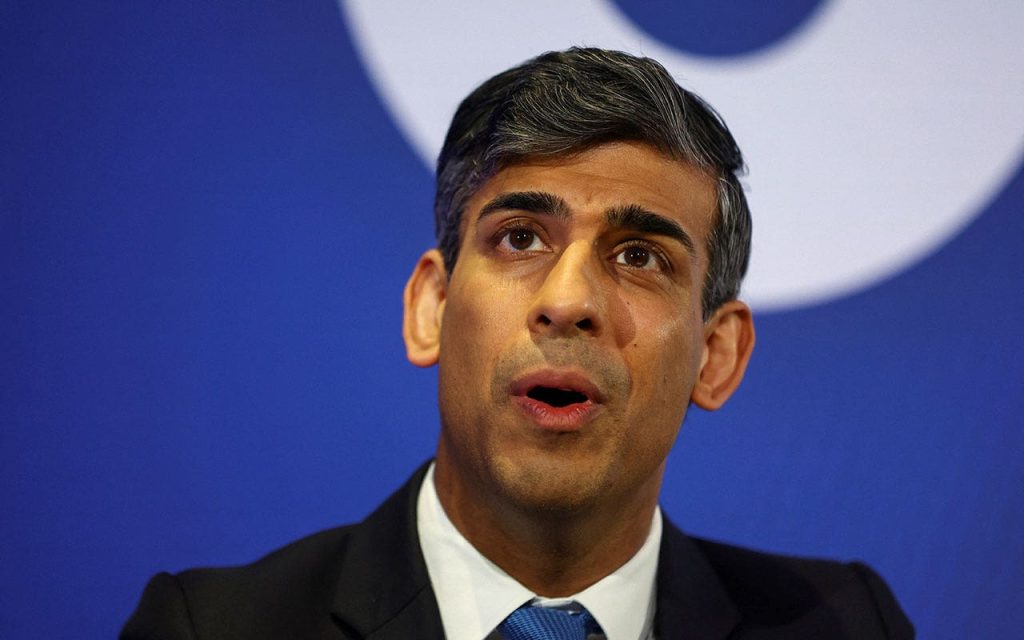International leaders, including UK Prime Minister Rishi Sunak and Canada’s Prime Minister Justin Trudeau, condemned Iran’s drone and missile attacks on Israel, calling for peace in the Middle East. Sunak stated that Iran’s attack demonstrated their intent to sow chaos in the region, and the UK stands with Israel and its regional partners to stabilize the situation and prevent further escalation. Trudeau echoed the UK’s sentiments, stating that Canada unequivocally condemns Iran’s attacks, which will further destabilize the region and hinder lasting peace. Both leaders emphasized their support for Israel’s right to defend itself against such attacks.
Germany’s Foreign Minister Annalena Baerbock also denounced Iran’s attacks, warning that they had the potential to plunge the entire region into chaos. She called on Iran and its proxies to stop the attacks immediately, expressing solidarity with Israel during this difficult time. Israel’s ambassador to the U.S., Ambassador Michael Herzog, emphasized that Iran must be held accountable for its actions and thanked the United States for its support and commitment to Israel’s security. He praised Israel’s defense capabilities and determination to defend itself against threats.
President Biden announced that the U.S. military had moved aircraft and ballistic missile defense destroyers to the region in response to Iran’s attacks. Biden assured Prime Minister Netanyahu of America’s ironclad commitment to Israel’s security and praised Israel’s successful defense against the attacks. Biden revealed plans to convene with leaders from G7 countries to coordinate a united diplomatic response to Iran’s actions. He vowed to remain vigilant against any threats and take all necessary action to protect their people and security interests.
The international community’s condemnation of Iran’s attacks and support for Israel’s right to defend itself highlights the seriousness of the situation in the Middle East. Leaders from the UK, Canada, Germany, and the U.S. have all emphasized the need for stability and peace in the region, while holding Iran accountable for its reckless actions. The show of solidarity with Israel and commitment to its security demonstrates a united front against aggression and destabilization. The upcoming G7 meeting to coordinate a diplomatic response reflects a coordinated effort to address the escalating tensions and prevent further conflict.
The events surrounding Iran’s attacks on Israel have drawn strong reactions from leaders across the globe, emphasizing the importance of upholding peace and security in the region. The threats posed by Iran’s actions have prompted swift responses from international partners, who are united in condemning the attacks and standing with Israel. The discussions at the G7 meeting will be crucial in formulating a coordinated approach to address the situation and prevent further escalation. The support for Israel’s right to defend itself and the commitment to ensuring its security underscore the gravity of the threats faced by the country and the need for a unified response.
As tensions continue to rise in the Middle East, the international community remains steadfast in condemning Iran’s aggressive actions and supporting diplomatic efforts to restore peace and stability in the region. The solidarity expressed by global leaders with Israel in the face of escalating threats reflects a shared commitment to upholding security and deterring aggression. The announcement of the G7 meeting to formulate a united response underscores the urgency of addressing the situation and preventing further conflict. By standing together against Iran’s destabilizing activities, world leaders are sending a clear message that such actions will not be tolerated and that collective efforts will be made to uphold peace and security in the region.













